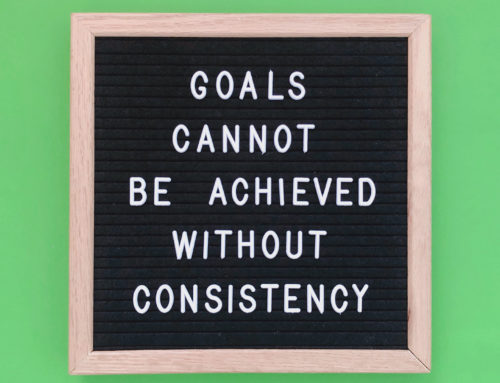In this podcast we look at what flipping houses is really like with Wendy Russell, a real estate investor and TV personality out of Toronto, Canada.

Wendy Russell
Home Flipping Tips Takeaways
- Watch out for the hidden expenses!
- Build a team of contractors, real estate agents and bankers.
- Always get the inspection.
Home Flipping Tips Links
https://www.keyspire.com/
http://createcashflowformula.com
https://wendyrussell.com
Home Flipping Tips Podcast Transcription
Adam Small: Hello and welcome to the Real Estate Marketing Minute. Today, we’re going to be talking about tips for real estate investing and we’ve got a couple of people here in the studio with us. One is Kimberly small, hi Kimberly, how are you?
Kimberly Small: Doing well.
Adam Small: Great and then, the other is our special guest Wendy Russell. Wendy is a real estate investor and TV personality out of Toronto, Canada. Hi Wendy, how are you?
Wendy Russell: I’m good. How are you guys?
Adam Small: Doing great, thanks. Wendy, why don’t you tell us a little bit about yourself and kind of how you got into real estate investing?
Wendy Russell: Yeah, it started a long, long time ago. I grew up with a stepfather, who was a master carpenter and a contractor. We were constantly living through homes being renovated when we were growing up. At the tender age of 13 or 14, he had me painting baseboards and window casings and I was very unhappy about it. I had much better things to do, like go to the mall with my friends and things like that. Ultimately, he gave me my greatest gift, which was to teach me how to put sweat equity into home. He taught me how to be a do-it-yourselfer. From there being super crafty and handy, I ended up hosting a show for HGTV Canada, called She’s Crafty. It was very much about creating do-it-yourself projects for your home, home decor things.
Adam Small: Nice.
Wendy Russell: Yeah, it aired in the States for a number of years actually on Ion Life. Got some amazing loyal fans across North America, it’s amazing and then, the show ended up airing in random countries like Japan and Colombia and France.
Adam Small: You’re an international superstar?
Wendy Russell: Well, you know, I don’t know that. Yeah, so that’s sort of where that led to. My husband, his father was a contractor as well, so he always learned how to use the power tools too.
Adam Small: It’s in the blood.
Wendy Russell: We had no fear, yeah, no fear going into it together.
Adam Small: Great.
Kimberly Small: You mentioned HGTV and I know in working with realtors, they always talk about misconceptions that buyers and sellers have. Based on that show, they make flipping houses look very easy and all of that. What are some of the skills required for somebody that wants to tackle that?
Wendy Russell: Sure, listen, first and foremost, let’s do the math people. I think what those TV shows don’t reveal is the net profit on a flip. They only talk about the gross profit, which is far sexier for television of course.
Adam Small: Little misleading, right?
Wendy Russell: Very misleading, so they don’t talk about all the expenses that are incurred to actually get a house sold when you’re flipping it. If you’ve ever seen any of the TV shows, like First-Time Flippers or Renovation Realities that is actually the reality of people doing their first flip and it reveals how challenging they really are. That’s great and it’s sometimes a great example of what not to do in terms of us as real-estate investors, we go into homes. We see so many bad flips and that’s pretty concerning because if the finishes are bad to the eye as you walk in the room, you can imagine what it looks like behind the walls. The other thing in real estate in terms of one of the mantras that we live by is usually the fastest money you make in real estate is usually the least amount of money that you’re going to make in real estate.
Kimberly Small: Somebody that’s just getting into real estate investing, what are some of the strategic partnerships that they should look to establishing?
Wendy Russell: I think as a real estate investor, you absolutely need to have a great team to work with and that includes a great agent, a lawyer, accountant, home inspector, a plumber, electrician, the gamut because you’re going to be working with these people over and over again. It’s key though absolutely to have your lawyer, your solicitor and an accountant to be experts in real estate and real estate investing. It’s actually preferred if they are real estate investors themselves because they will know the nuances that other accountants and lawyers may not. Those two, if you’re going to choose any two of your service providers that you’re going to team up with and create your sort of long-term team, those two would definitely you want to look at to be real estate investors themselves.
Kimberly Small: Okay, when looking for properties, let’s talk about permits, how do you verify that a space that you’re buying has the proper permits and that what you hope to do with the property is going to be allowed?
Wendy Russell: Well, this is where you make really good friends at City Hall. Get your butt down to City Hall and you can find out this information. Either depending on where you live, you may be able to either call into City Hall and verify that information over the phone. I, on the other hand, like to go down in person and make friends with the zoning department, so they reveal everything that’s ever been done to the home legally through permits. If I’m looking at a property that has an addition on it, I want to verify that that addition has been done through the city legally that it’s up to current building code that kind of thing. They’ll reveal all that information. That may have some bearing on whether or not you buy the property or not, depending on what you want to do with it.
There’s that and then, on top of that the other thing that the city will share with you is they’re going to tell you what your maximum density is in terms of how large you can build on your particular lot. If your lot is 20 feet wide by 100 feet long that your lot size is 2,000 square feet. In my particular neighborhood, this little house that we just bought, our maximum lot density in terms of build is 0.8%, so 80% of the lot size. I can build up to a 1600 square foot home on my particular lot. We purchased this tiny bungalow at 610 square feet. We can add almost a 1,000 square feet, which is exciting and all of a sudden that adds huge-
Adam Small: Wow.
Wendy Russell: … value and major ROI at the end of the day in terms of building that much square footage onto the home.
Kimberly Small: if you find out that there’s an addition on a property that you’re interested in and the permit does not exist for that addition, is there any way of rectifying that?
Wendy Russell: It’s almost one of those things, where you can either decide to tear it down and start from scratch and actually, go through the proper channels to build it and build it safely because ultimately, you don’t know what’s under the walls, how they’ve done the foundation, all of those things that may have not been run by a structural engineer and signed off on by the city. It’s totally a personal decision. If you are planning to add on to the property anyways, you can probably consider taking down that addition that wasn’t done legally or properly through the city and then, start from scratch. There may be some ways if you want to keep what they’ve done, but rectify it as it were, you could bring in a structural engineer to really have them assess and look at, do a deep dive into what’s been done. Then, he’ll give suggestions on how to possibly improve on what’s been done to make sure it’s safe.
Adam Small: One of the things I see on a lot of these flip shows is where they buy the house, site unseen, no inspection that sort of thing. Is an inspection really necessary? I mean when you’re buying a home to live in, they always tell you, “You need to get an inspection.” Some states even mandate it, at least down here in the US. What’s your experience with that inspection necessary, yes, no on your flipping?
Wendy Russell: I still say yes to the inspection and the reason I do that is because we end up using the home inspection as our to-do list. It’s a great tool to have, not only when you’re flipping it, you can then present it to the potential buyer and say, “This was the inspection that was done when we purchased it and we have literally repaired all of the things on this list, so the house is now either up to code or up to date in terms of what needed to be done.” We use it as our to-do list. I think it’s one of those great things that it’s just an advantage in terms of especially when you’re flipping it, it makes the seller that much more confident in their purchase. That said, in addition to a home inspector, we actually bring along our electrician and our plumber. We hire them to come along and I know it sounds extreme, but here’s why because home inspectors are not necessarily picking up on latent defects. Those are the items behind walls and under the house in the ground, whereas like a plumber can throw the snake camera down the pipes and see what’s actually going on under the house. For that extra $250 or $300, whatever they’ll charge to come out and do that it’s totally worth it.
In fact, if we’d done it on the first two houses we purchased, it would have saved us over $25,000 in fixes and we would have had some sort of negotiating room with the seller because basically what had had happened in one of our homes, there was a huge tree in the front yard. It had broken all of the clay pipes under the house. The basement had been flooding for years. The seller did not disclose that. He’s got bad karma all around, but I have other things I could say about that but I won’t. Yes, he’s got the bad karma and we bought the house without having known that the basement was flooding. We were in the house for about three weeks before the basement had completely flooded. I then had to pack up my elderly father, get him into a hotel for three weeks before the basement that had to be repaired. It was about all told $25,000 once they dug up the driveway. We had to repave the driveway, fix the front flowerbed. Call in the contractor, who tore up the floor and had to replace the tile, like it was just an absolute disaster. For $300, I say save 25,000.
Adam Small: Sounds good to me.
Wendy Russell: Yeah.
Adam Small: When you’re looking at these places and trying to determine if there’s a good ROI or whether you flip it or rent it out or whatever, is there a particular science, you’re using a methodology that kind of says, “Yeah, this one’s going to work and that one’s not.”
Wendy Russell: Yeah, absolutely, I mean at the end of the day as a real estate investor, one of the most important things you can do is run the numbers. If you’re thinking about an income property, you have to make sure the numbers work. What I mean by that is that the ultimate endgame is that you are always cash flowing. If this property is going to cost you month to month, don’t do it. There is no reason in the world that you should be paying into your income property. That’s the whole point of this game is to make sure that you’re cash flowing. The reason that you likely want to get into real estate investing is to create passive income for you and your family and your future. If that money is going out of your pocket every month, totally defeating the purpose. I think also if you’re deciding on whether or not you should rent out the property or flip it, it really depends on where you’re purchasing the property. There are some cities, where it actually doesn’t make sense to flip because your net profit is going to be next to nothing, so it’s better to hang on to it and do a long term buy and hold.
Again, at the end of the day, you always have to be in the black, not the red or you’re defeating the purpose.
Adam Small: It’s really pretty simple equation, if you will, if you’re making money, great and if you’re not, then move on, don’t do it, right?
Wendy Russell: Absolutely and I think there are a lot of things to that when you’re running the numbers that rookie real estate investors maybe don’t consider in terms of what they need to put into that calculation, there are things like don’t forget to add your property tax, your monthly insurance. You can actually account for other things for income. If you can rent out a parking space or rent out the garage that also will count as income, but there are so many things on this long list of expenses that people forget that it’s really key to calculate in there.
Adam Small: Great, so what about like incentives from cities, a lot of cities have areas that have been run down a little bit and they’re trying to go in and revitalize them. We see here in Indianapolis, there have been some, where they provide an incentive to somebody to come in and fix up a place. Have you encountered that yourself?
Wendy Russell: Yeah, this one is another one of those, it totally depends on the city. You’re exactly right Adam, how hard was that area hit in the housing crisis, were people were actually walking away from their homes and now those towns and cities are urban blight? Those will be the cities that are providing incentives to real-estate investors and developers or even someone that’s like, “Hey, you know what, this might be a great city for me to get started with my real estate portfolio because I can purchase a home for $20,000 and rehab it and go from there.” Again, you want to start digging probably at your local City Hall to see if they’re offering anything and even your local city councilor or somebody, go to the mayor, whoever it is in the town that you live in, they will know where to go to find out about any incentives being offered.
Kimberly Small: You talk about making the numbers work. A lot of times you’ll see that investors will do full cash offers. Is that what it takes?
Wendy Russell: Again, it’s back to really running the numbers and it really also depends on where you’re purchasing a home. For example, in Indianapolis, you may be able to purchase a home for $20,000, $30,000, $40,000. In Toronto, where I’m at, it’s a hard press to find a house for $600,000. Full cash offers here doesn’t make sense. In cities where you can actually purchase it with cash that’s another thing. Now, one of the things that you need to know, another mantra, rule that we live by as real estate investors is we’re actually not trying to pay off our properties. The most successful people in real estate actually don’t pay anything off. Obviously, they’re making their monthly payments, but they are fully leveraged and they are not in a rush to pay anything off. That’s something you want to think about too. The more cash that you’re putting on a home, the less you have in your pocket perhaps to rehab the property, renovate the property and get it to a place, where you either want to live in it or are going to be able to rent it out.
Kimberly Small: Especially in a seller’s market, you’re going to see bidding wars. As an investor, what are your thoughts on that? How you should approach getting the property at the right price?
Wendy Russell: I follow the avoid bidding wars like the plague rule. I think that if you’re looking for an income property, don’t buy one that you get into a bidding war over. You could potentially leave that for your principal residence, if you must, but you really, really want the properties that have been sitting around for a while, so you have some room to negotiate, which will ultimately help your bottom line. Also, if you’re looking at a property with an offer date, avoid it because they are looking to get an over asking price and you’ll never have time to get to City Hall to do the research that you need to. For me, I avoid bidding wars like the plague because if you’re flipping or if you’re doing an income property, at the end of the day, it doesn’t make sense, unless of course, the price is so crazy ridiculously low that you can’t not have it. Where I’m at right now, in terms of in the big city of Toronto, it’s not a good plan because you’ll end up in the hole.
Kimberly Small: You talked about some of the hidden costs that people don’t think about and also some of the things that lessons you learned by not having an inspection and other stuff, any other tips for somebody that’s just getting started in real estate investing, something that might help them out and-
Wendy Russell: Sure.
Kimberly Small: … save them some pain based on your experience?
Wendy Russell: I think in terms of hidden costs that’s going to vary property by property, depending on what you decide to do to it. Is it a full rehab, is it maybe underperforming in some way, so it’s not a full renovation, but it’s underperforming or is it a turnkey property? For example, if you’re going to do a full rehab, you need to budget for an architect, a structural engineer, your land survey, temporary fence rentals, a Porta Potti. All of these things, where you’re like, “Oh my gosh, I forgot I had to have a fence and a Porta Potti,” because once you take the plumbing out of the house that’s it. If you’re working with an architect, this sounds really silly, but you want to find one that’s got a large scale printer in their office and they’re actually going to include those 24 by 36 drawings for you because otherwise, you go to a printing company, they’re going to charge you anywhere from $300 to $500. Hopefully, you’ve got an architect, it’s included in your flat rate that you negotiate with them that they’ll give you these drawings because it’s not cheap.
The other thing is in terms of not so obvious costs, I guess if you’re going to do the demolition yourself, you also need to budget for disposal bins, tool rentals, maybe even some tool purchases, if you find yourself using the same tool over and over again. You’re like, “Okay, I finally need to buy that demolition hammer because I’m using it all the time.” Those types of things need to be included.
Kimberly Small: Okay, little amounts can all add up too.
Wendy Russell: Oh boy, do they ever?
Adam Small: Yeah, I’ve never run into that myself. That’s for sure.
Wendy Russell: No, oh, you’re lucky. You’re magical, you’re like the Unicorn.
Adam Small: Yeah, no sarcasm there. It’s funny the people that do get into real estate investing, some of them are real estate agents, decide they want to try their hand at flipping homes just because they come across these deals. Then, others are people, who are not real estate agents, but they have to have a real estate agent involved in the transaction or help them get the place sold. I shouldn’t say have to, but most the time.
Kimberly Small: In your experience, what are some of the things that you look for when you’re working with an agent and deciding to work with them in this particular area, flipping and renting that sort of thing? Is that really kind of the traditional buyer-seller relationship or is it different?
Wendy Russell: I think it’s a little bit of both. That’s a great question. I think as a real estate investor, you want an agent that you’re okay with being in a long-term relationship with. This is somebody you’re going to be, for lack of a better term, in bed with for a long time, someone you can trust and someone, you genuinely like because you’re going to be spending a lot of time with them. If you’re serious about real estate investing that’s going to be your right hand. I use the analogy, if you’d actually go and sit down and have a meal and a beer with them and you trust them on that level that, “I like this person enough, I can have a beer with you.” You need someone you can trust to actually bring you off market deals or pocket deals that kind of thing, so those are the kind of conversations that you want to have with them and say, “Hey listen, if you get a line on something about your cousin’s husband’s uncle is selling their house and it hasn’t hit the market yet, let me know.” Those pocket deals are a great way to make money in real estate. It’s a win-win situation for both parties.
An example is my agent knew that we were looking for a home that we could split into three units. We were going to live in one of the units, rent out the other two. She knew a gentleman that she worked with years ago, he’d gotten himself in a bit of financial trouble and he was getting pretty desperate to sell, but on the other hand, was also kind of this older stubborn kind of introverted guy, who didn’t want a bunch of people traipsing through his house. He gave her all sorts of parameters. He said, “If you are going to sell my house, here are the rules, no for sale sign on the front yard, no showings after 7:00 p.m., if you are doing showings, I need to be there and no open houses.” She’s like, “Oh that’s great, how am I supposed to sell your house?” Wow.
Adam Small: Yeah that make it easy.
Wendy Russell: She said, “Well, here’s the situation for you, I have a couple that’s interested, which will avoid the hundreds of people that are going to come traipsing through your house. You don’t have to put a for sale sign up. There are going to be no open houses, no showings, all of that. We’ll get them in once. If they’re interested, it’s kind of a done deal.” That one was a win-win-win for the three of us. He got his way. The agent made the commission and we got a house at far less than it would have been if it had actually hit the market. That was really exciting. That’s a great example of having your agent in the back of their mind, always thinking about, “Hey, looking out for you if they get a line on a house that could be possibly sold without it being listed.”
Adam Small: That’s been great, really interesting stuff here. Before we wrap up, do you have anything else that you want to add?
Wendy Russell: I would just say if you have the time and the inclination, consider being your own project manager. I’m acting as our general contractor or project manager. It is saving us a significant amount of money. It’s usually at least 15% of the total project cost to have a contractor. If you’re doing a $200,000 project, you’re paying them at least $30,000. Then, they also manage the project for you, but that’s why they take on numerous projects at once because 30 grand to them is not a ton of money. They’re working on a whole bunch of different projects and that’s why people usually complain that their contractor never seems to be around. To be totally honest, I’m just way too much of a control freak to not be in charge here. You do need to be able to organize-
Adam Small: Well, I mean-
Wendy Russell: … for sure, sorry, go ahead.
Adam Small: Yeah, it sounds like it could save you considerable amount of money too.
Wendy Russell: Yeah, it does.
Adam Small: That adds up after a while you flip a few houses, 30 grand a pop that’s a 100 grand after a couple houses, three houses, right?
Wendy Russell: Listen, if you’re like J. Paul Getty and you have all the money in the world, you can pay someone to be your general contractor. I am not that guy, so I am just going to run the show myself, yeah. I also work with Scott McGillivray from Income Property. He created a real estate investing education company called Keyspire with his university buddy. Scott and my colleague, Darren and I speak on the topic of real estate investing, so keep an eye out for us. We’re maybe coming to a city near you soon. It’s, yeah, keyspire.com or you can check out createcashflowformula.com. My TV stuff is on cityline.tv and some of my reno, handiwork is at wendyrussell.com, so got a whole bunch of things to check out there.
Adam Small: Awesome, great. We’ll make sure we include those in the description as well and the blog posts and stuff like that. All right, Wendy, thank you so much for joining us, been very informative, learned a lot today.
Wendy Russell: Cool.
Adam Small: To all of our listeners out there, this has been the Real Estate Marketing Minute. Thanks for listening, we’ll see you next time. All right.
Wendy Russell: Thanks guys, bye.







